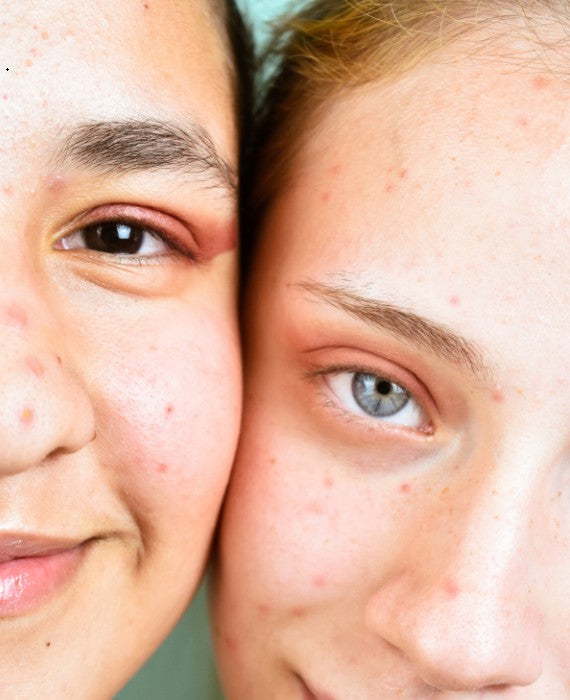
The Role of Diet in Acne: What to Eat (and Avoid)
Share
Acne is a prevalent skin condition that affects many people. While it is often linked to hormones or genetics, your diet can also influence its development. Certain foods can aggravate or worsen acne, while others can help promote clearer skin. Here's a closer look at the relationship between diet and acne, as well as advice for keeping your skin healthy.
Foods to Avoid:
Avoid high-glycemic foods such as white bread, sugary snacks, and processed cereals, as they can spike insulin levels and increase oil production in the skin, leading to acne breakouts.
Dairy Products: Some studies suggest that milk, particularly skim milk, may contribute to acne due to hormone levels. Reducing dairy consumption may help in some cases.
Fried and fatty foods: Greasy foods can cause inflammation in the body, worsening acne. Choose healthier fats from sources such as avocados or nuts.
Foods to Include:
Consume antioxidant-rich fruits and vegetables, such as berries, leafy greens, and tomatoes, to reduce inflammation and promote healthy skin.
Omega-3 Fatty Acids: Fatty fish, such as salmon and flaxseeds, can reduce inflammation and keep the skin hydrated.
Whole Grains: Unlike refined carbohydrates, whole grains such as quinoa and brown rice provide consistent energy without causing insulin spikes.

Skin Care Tip:
In addition to eating a balanced diet, it's important to care for your skin externally. For acne-prone skin, a soothing ointment such as NotS CentellaScar Ointment can help reduce inflammation and speed up healing. The ointment contains centella extract, which is known for its skin-healing properties, making it an excellent choice for treating scars and reducing the appearance of acne marks.
A balanced diet combined with proper skincare can lead to healthier, clearer skin. Always remember that results take time, so be patient with your diet and skincare regimen!

